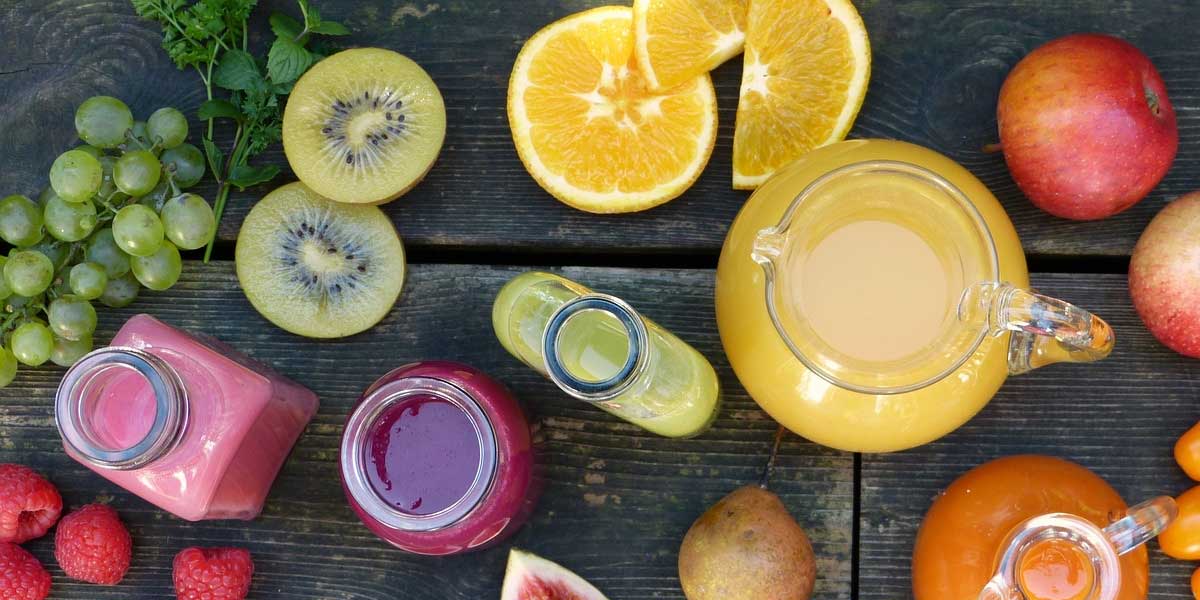A Immune-Boosting system is essential for protecting the body against harmful pathogens and maintaining overall health. While there is no single food that can magically boost your immune system, a balanced diet rich in immune-boosting nutrients can support its function and resilience. In this article, we’ll explore a variety of foods that can help strengthen your immune system and keep you feeling your best.
Understanding the Immune System
The Role of the Immune System
The immune system is a complex network of cells, tissues, and organs that work together to defend the body against infections and diseases. It identifies and eliminates pathogens such as viruses, bacteria, and other harmful substances, while also recognizing and removing damaged or abnormal cells.
Factors Affecting Immune Function
Several factors influence Immune-Boosting function, including genetics, age, stress levels, sleep quality, and nutrition. While some factors are beyond our control, adopting healthy lifestyle habits, including a nutrient-rich diet, can positively impact immune health.
Key Nutrients for Immune Health
Vitamin C
Vitamin C is a powerful antioxidant that plays a critical role in supporting immune function. It helps stimulate the production of white blood cells, which are essential for fighting infections, and enhances the function of immune cells.
Sources of Vitamin C
- Citrus fruits such as oranges, lemons, and grapefruits
- Bell peppers
- Strawberries
- Kiwi
- Broccoli
- Brussels sprouts
Vitamin D
Vitamin D is known as the “sunshine vitamin” because our bodies can produce it when exposed to sunlight. It plays a crucial role in regulating immune function and reducing the risk of respiratory infections.
Sources of Vitamin D
- Fatty fish such as salmon, mackerel, and tuna
- Fortified dairy products
- Fortified plant-based milk alternatives
- Egg yolks
- Mushrooms
Zinc
Zinc is an essential mineral that supports various aspects of immune function, including the development and function of immune cells and the body’s ability to fight off infections.
Sources of Zinc
- Shellfish such as oysters, crab, and mussels
- Red meat
- Poultry
- Beans and legumes
- Nuts and seeds
Probiotics
Probiotics are beneficial bacteria that promote a healthy balance of gut microbiota, which plays a crucial role in immune function. They help strengthen the gut barrier, modulate immune responses, and protect against infections.
Sources of Probiotics
- Yogurt
- Kefir
- Fermented foods such as sauerkraut, kimchi, and tempeh
- Miso
- Kombucha
Antioxidants
Antioxidants are compounds that help neutralize harmful free radicals and reduce inflammation, thereby supporting immune function and protecting against oxidative stress.
Sources of Antioxidants
- Berries such as blueberries, strawberries, and raspberries
- Dark leafy greens like spinach and kale
- Nuts and seeds
- Dark chocolate
- Green tea
Immune-Boosting Foods and Recipes
Citrus Fruits
Citrus fruits are rich in vitamin C, making them an excellent choice for supporting immune health. They can be enjoyed fresh, juiced, or incorporated into various dishes.
Recipe: Citrus Salad
- Ingredients:
- Mixed greens (spinach, arugula, kale)
- Sliced oranges, grapefruits, and/or tangerines
- Sliced avocado
- Toasted nuts (almonds, walnuts, or pistachios)
- Citrus vinaigrette (olive oil, lemon juice, Dijon mustard, honey, salt, and pepper)
- Instructions:
- In a large bowl, combine the mixed greens, sliced citrus fruits, avocado, and toasted nuts.
- In a small bowl, whisk together the ingredients for the citrus vinaigrette.
- Drizzle the vinaigrette over the salad and toss gently to coat.
- Serve immediately as a refreshing and nutritious side dish or main course.
Garlic
Garlic contains compounds like allicin, which have antimicrobial properties and may help boost immune function. It can be added to various savory dishes to enhance flavor and provide potential health benefits.
Recipe: Garlic Roasted Chicken
- Ingredients:
- Chicken pieces (bone-in, skin-on thighs or breasts)
- Garlic cloves (peeled and minced)
- Olive oil
- Fresh herbs (rosemary, thyme, or parsley)
- Salt and pepper
- Instructions:
- Preheat the oven to 375°F (190°C).
- Place the chicken pieces in a baking dish and season with salt and pepper.
- In a small bowl, combine the minced garlic with olive oil and chopped herbs.
- Rub the garlic mixture over the chicken pieces, ensuring they are evenly coated.
- Roast in the preheated oven for 25-30 minutes or until the chicken is cooked through and golden brown.
- Serve hot with your favorite sides for a flavorful and immune-boosting meal.
Yogurt
Yogurt is a rich source of probiotics, which support gut health and immune function. Enjoy yogurt as a snack, breakfast option, or ingredient in smoothies and sauces.
Recipe: Berry Yogurt Parfait
- Ingredients:
- Greek yogurt (plain or flavored)
- Mixed berries (strawberries, blueberries, raspberries)
- Granola
- Honey or maple syrup (optional)
- Instructions:
- In a glass or bowl, layer Greek yogurt with mixed berries and granola.
- Repeat the layers until the glass or bowl is filled.
- Drizzle honey or maple syrup on top if desired for added sweetness.
- Serve immediately as a nutritious and delicious parfait for breakfast or as a snack.
Green Tea
Green tea contains antioxidants called catechins, which have immune-boosting properties. Enjoy green tea as a hot or iced beverage to reap its potential health benefits.
Recipe: Green Tea Smoothie

- Ingredients:
- Green tea (brewed and cooled)
- Frozen mixed berries
- Spinach or kale
- Banana (fresh or frozen)
- Honey or maple syrup (optional)
- Instructions:
- In a blender, combine brewed green tea, frozen berries, spinach or kale, and banana.
- Blend until smooth and creamy, adding honey or maple syrup for sweetness if desired.
- Pour into glasses and serve immediately as a refreshing and immune-boosting smoothie.
Incorporating Immune-Boosting Foods into Your Diet
In addition to specific recipes, here are some practical tips for incorporating immune-boosting foods into your daily diet:
Include a variety of fruits and vegetables:** Aim to fill half your plate with colorful fruits and vegetables at each meal. Choose a variety of options to ensure you get a wide range of vitamins, minerals, and antioxidants.
- Experiment with herbs and spices: Add flavor to your meals while boosting their immune-boosting potential by using herbs and spices like turmeric, ginger, garlic, and oregano.
- Incorporate fermented foods: Include probiotic-rich foods like yogurt, kefir, sauerkraut, and kimchi in your diet to support gut health and immune function.
- Opt for whole grains: Choose whole grains such as brown rice, quinoa, oats, and whole wheat bread over refined grains to increase your intake of immune-boosting nutrients like fiber, vitamins, and minerals.
- Include lean proteins: Incorporate lean protein sources such as poultry, fish, tofu, beans, and lentils into your meals to support muscle health and immune function.
- Stay hydrated: Drink plenty of water throughout the day to stay hydrated and support the proper functioning of your immune system. Herbal teas, infused water, and coconut water are also excellent hydrating options.
Lifestyle Factors for Immune Health
In addition to dietary choices, certain lifestyle factors can also impact immune health. Here are some tips for maintaining a healthy lifestyle to support your immune system:
Get regular exercise
Regular physical activity can help strengthen your immune system by promoting good circulation, reducing inflammation, and supporting overall health and well-being. Aim for at least 30 minutes of moderate-intensity exercise most days of the week, such as brisk walking, cycling, swimming, or dancing.
Manage stress
Chronic stress can weaken the immune system and make you more susceptible to illness. Practice stress-reducing techniques such as deep breathing, meditation, yoga, tai chi, or spending time in nature to help manage stress levels and promote relaxation.
Prioritize sleep
Getting an adequate amount of quality sleep is essential for immune health. Aim for 7-9 hours of sleep per night and establish a relaxing bedtime routine to promote restful sleep. Avoid caffeine, electronic devices, and stimulating activities before bedtime, and create a comfortable sleep environment free of distractions.
Practice good hygiene
Practicing good hygiene habits can help prevent the spread of germs and reduce your risk of infections. Wash your hands frequently with soap and water, especially before eating, after using the restroom, and after coughing or sneezing. Cover your mouth and nose with a tissue or your elbow when coughing or sneezing, and avoid close contact with people who are sick.
Limit alcohol and tobacco
Excessive alcohol consumption and tobacco use can weaken the immune system and increase your risk of infections and other health problems. Limit alcohol intake to moderate levels and avoid smoking or using tobacco products to protect your immune health and overall well-being.
Conclusion
Incorporating immune-boosting foods into your diet and adopting healthy lifestyle habits are key strategies for supporting immune health and reducing your risk of illness. By including a variety of nutrient-rich foods, staying active, managing stress, prioritizing sleep, practicing good hygiene, and avoiding harmful habits, you can strengthen your immune system and enhance your overall health and well-being. Remember that small changes can make a big difference, so start by making gradual adjustments to your diet and lifestyle and build on your progress over time. With a balanced approach to nutrition and lifestyle, you can optimize your immune system and enjoy a healthier, more resilient life.
